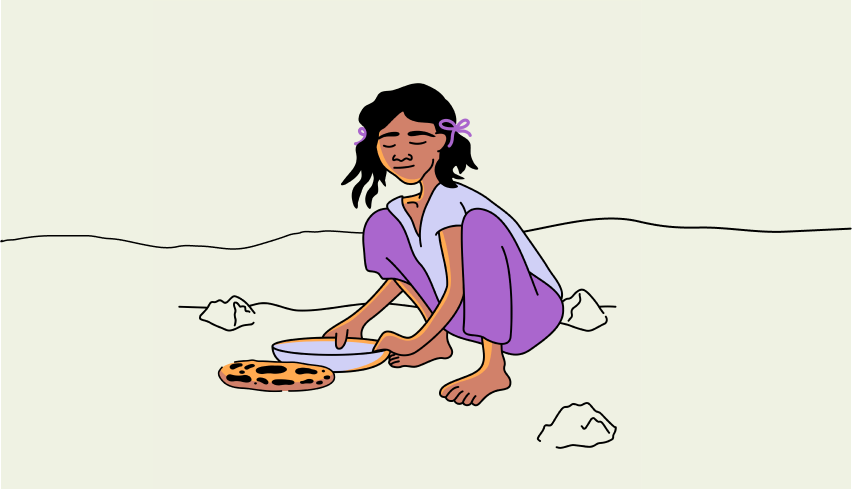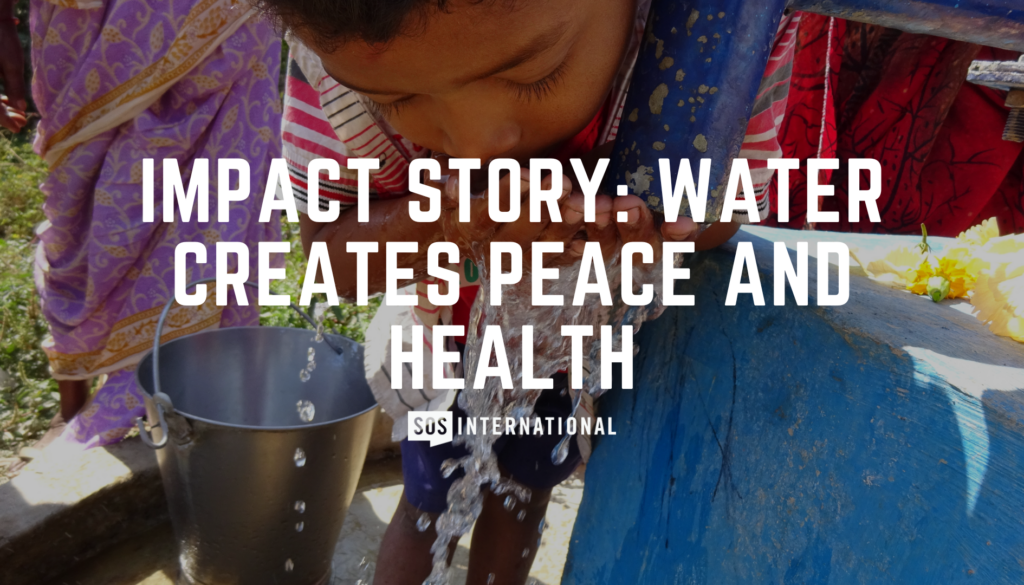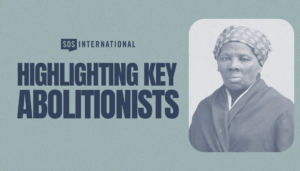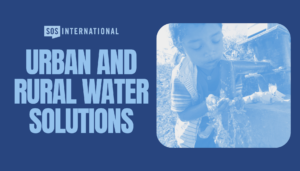Written By: SOS International
When you think of clean water, what is your first thought? Perhaps you think of water that is clean enough to drink or water that can be used to grow vital crops in a community. These are significant impacts! But did you know that clean water helps sustain local economies and keep unity? We see this play out in communities all the time. One village, in particular, highlights the profound and wide-ranging impact that clean water can have on a community.
A village of farm laborers in Asia is facing numerous challenges from water scarcity—two sides of this community war against one another due to water scarcity. One side of the village has a government water tap nearby, but the price to pay for water far outweighs what they make from their daily wages. As a result, villagers have no choice but to collect water from open and contaminated water sources. Contaminated waters often contain bacteria that lead to lethal waterborne diseases, posing a huge health risk to the entire community.
On the other end of the village, the tension brought on by the water scarcity forces them to look for water elsewhere to avoid contact with villagers from the other side. The nearest water source is a 40-minute walk in the opposite direction. This walk for water is a major hindrance for the villagers, requiring significant time and energy to fetch water. These farm workers work long hours and can’t afford to miss a day’s wage, meaning that the two-hour venture for water rests on the shoulders of older women and young girls who miss school as a result. Life on both sides of this village is challenging, as the lack of clean water and its ripple effects deeply impact the community.
This isn’t how this village’s story ends. Clean water is changing everything in their community. Through water wells drilled in the village, water is now easy to access and free for all to use. There have been four major impacts on this community as a result:
Improved community health: Clean water makes good hygiene possible, leading to better disease control. With close access to clean water, the two-hour trips to fetch water have been eliminated, significantly reducing the physical strain on women and children and improving the community’s general health.
Better education: Girls can now spend the hours they once spent fetching water in the classroom instead, which is helping to improve education levels in the community. Everyone benefits from increased hygiene and hydration, as it leads to fewer days missed due to illness and provides the hydration their brains need to stay focused and learn throughout the school day.
The local economy has improved: 3 out of 4 jobs in the global workforce depend on water, making it essential for the local economy. This is especially true in a community like this one where farming is the main occupation and is heavily dependent on water. Water availability and overall health lead to more strength to work, fewer missed days, and better crop production. This stimulates the local economy, which can end generational poverty.
Brought peace: Clean water has led to peace between the previously conflicting sides in the community. With enough water to go around, there is no longer any competition between neighbors for this precious resource. Instead, there is enough for all, which has led to a unified and peaceful village. Water has become an agent of peace for this community!
This is just one example of the transformative power of clean water. Such transformations are made possible through your partnership. Stories like this remind us again and again of the real and lasting impact that happens when everyone has access to clean, safe, and affordable water. To make an impact of your own, click the button below!












